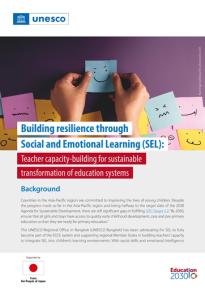Publication
Mother Tongue Matters: Local Language as a Key to Effective Learning


Several concerns converge on the issue of using local or minority languages in formal education. One of these has to do with increasing awareness of the value of the world's linguistic and cultural diversity. Another concern has to do with the commitment of the world's nations to the goals of Education for All (EFA) and the limited likelihood that these goals will be realized by 2015 or, indeed, at all. A third concern, related to the second, is clear at local and national levels when communities, parents, local education officers and national authorities recognize that the longstanding language-in-education policies they have been relying on to usher in economic and social progress have simply not worked.
Each of these concerns can be addressed in some measure by explicitly including local languages in formal education systems. The research evidence today clearly shows that using the leaners' mother tongue is crucial to effective learning. Indeed, some educationists have argued that the only countries likely to achieve EFA are those where the language of instruction is the learners' mother tongue. However, the prevalence of globalization and democratic ideals demonstrates that students must be proficient in international and reginal languages to gain access to wider society and to participate meaningfully in their world.
-----
Mother Tongue Matters: Local Language as a Key to Effective Learning
2007, 48p. (ED.2007/WS/56 REV.)
#MotherTongue #MotherLanguage #InclusiveEducation #Equity&InclusionInEducation









